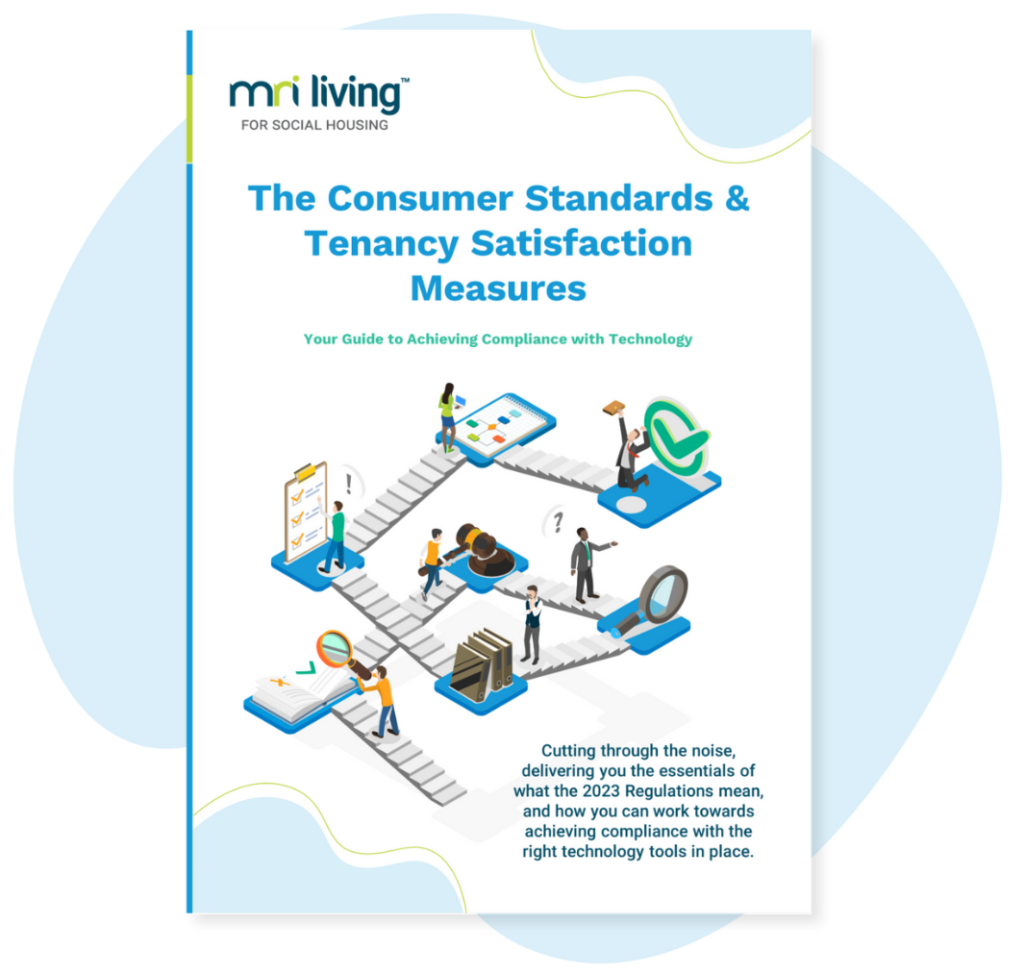The Resident Voice Index™ initiative; A brief outline of sector and resident consultation
After months of research and development, the Resident Voice Index™ initiative’s ‘Neighbourhoods & Communities’ survey has closed. The team at MRI Software are now working to deliver robust analysis of the results using unique business intelligence tools and our in-house and partner experts. The findings will be published in August to residents and the sector.
We are now entering the last phase of the first output of the Resident Voice Index™ initiative, bringing together the impactful results and developing sophisticated analysis to draw out the insights we hope may impact the future service delivery of social housing in the UK and the shaping of local neighbourhoods and communities.
As part of this process, we reflected on the invaluable insights gained from stakeholder workshops conducted with leaders in the sector and with residents who guided the themes of the project. In the groups we spoke about shared challenges and hopes and built the outputs to reflect the priorities facing social housing today.
The topics covered investigated how resident engagement should be improved, the limitations of satisfaction as a measurement of a housing provider’s work and the tangible and intangible interventions that could help. During the eight sessions across March and April, core themes emerged illustrating the pathways for housing providers to investigate over the coming years.
Resident engagement: can we get it right?
A consensus emerged that satisfaction is nowhere near a broad enough measure for understanding the needs of residents. Recent press and the Charter for Social Housing Residents have put into sharp relief that a ‘78%’ measure of home satisfaction may not mean all that much, particularly if that number cannot be analysed within its wider context of internal and external data.
If indeed conventional measures of satisfaction are not enough, the next step explored was what could be – and what aspects of questioning residents would accept regarding their opinions and feelings. The overwhelming response from those we spoke to, when asked if they would feel comfortable speaking about more personal and hard-hitting topics, such as mental health, was that these questions could be asked but they had to be transparent and purpose driven.
As one resident put it, “Ask me anything, but tell me why first and tell me how my answer is going to be used later.”
For residents, there is a desire for communication approaches to be re-examined in order to overhaul resident engagement. An ‘easy win’ fed down from the resident consultations was for providers to eradicate jargon from communications, using plain English instead and being realistic about the limitations of services.
A worry put forward across all stakeholder consultations was the prevalence of the same people showing up for engagement exercises; the challenges faced are how to get more residents involved and to hear from those that are silent. For example, one provider’s research found that only 20% of their residents contacted them. For the remaining 80%, the challenge is now working out how their voices can be used to inform service improvements.
Part of the work many housing providers are undertaking is around enhancing or moving away from transactional surveys focused solely on service delivery and trying to ask questions centred around what residents care about to gain a deeper understanding and build personas.
A big challenge: tackling antisocial behaviour
Numerous residents that we spoke to were worried about the impact that poor behaviours and minimal support to victims and perpetrators may have on communities. Early trends from the Resident Voice Index™ ‘Neighbourhoods & Communities’ survey suggest similar sentiments from social housing residents across the UK.
In some cases, workshop attendees feared that many instances are not reported either to the police or housing providers because residents aren’t satisfied that the issues will be dealt with and that some neighbourhoods are suffering in silence without tangible pathways to address the problems.
For housing providers, similar concerns were echoed, that social safety and building safety are the baseline of their provision and that these issues need to be addressed to sustain resident trust. These problems are not easy to solve and will take a plethora of methods, technical tools and partnerships to manage the work actively.
Multi-agency co-operation
Housing as a sector is unique in having to understand the relationship with its customers who are placed at a junction of multiple factors. Home is a linchpin of stability, resilience, wealth, health and cohesive communities. Given this responsibility, housing providers find themselves needing to collaborate with residents, health providers, community groups, the police and a wealth of other services to work together at a civic level.
During the focus groups, a large housing provider with homes across the UK spoke of the challenges they faced working with teams from over 160 local authorities and trying to engage in work that helps increase localism across the communities where they have homes. The local environment may not be something all housing providers are directly responsible for but to mitigate negative impacts and encourage positive ones, safe, secure and efficient systems should be utilised to get the right people talking to one another with access to the best and most up-to-date evidence.
Included in this joint-working approach are the residents themselves. One of our resident ambassadors put eloquently that housing providers need to see residents as an asset base of skills, passion and willingness, with local and interpersonal relationships at a community level. When given access to resources and affordable community space, these involved community members can work within neighbourhoods at a positive, grassroots level and help stem larger problems by building stronger social networks and activating more people across communities.
The Resident Voice Index™ is a long-term project by MRI Software seeking to deliver a suite of indices and insights publications that are going to challenge conventional customer satisfaction and performance communicators. We feel we are uniquely positioned for this project, having a large, independent and direct link to social housing residents across the UK. The results from the first survey will be delivered to the sector later in the summer and we are more than excited to share them and assess the impact that the results may have.
If you would like to get involved with the next stages of consultation for the Resident Voice Index™ initiative, please reach out to Solutions Principal and Project Lead, Doug Sarney at doug.sarney@mrisoftware.com.
The Consumer Standards and Tenancy Satisfaction Measures: Your Guide to Achieving Compliance with Technology
Cutting through the noise, delivering you the essentials of what the Consumer Standards and Tenancy Satisfaction Measures 2023 Regulations mean, and how you can work towards achieving compliance with the right technology tools in place. New regulatio…

